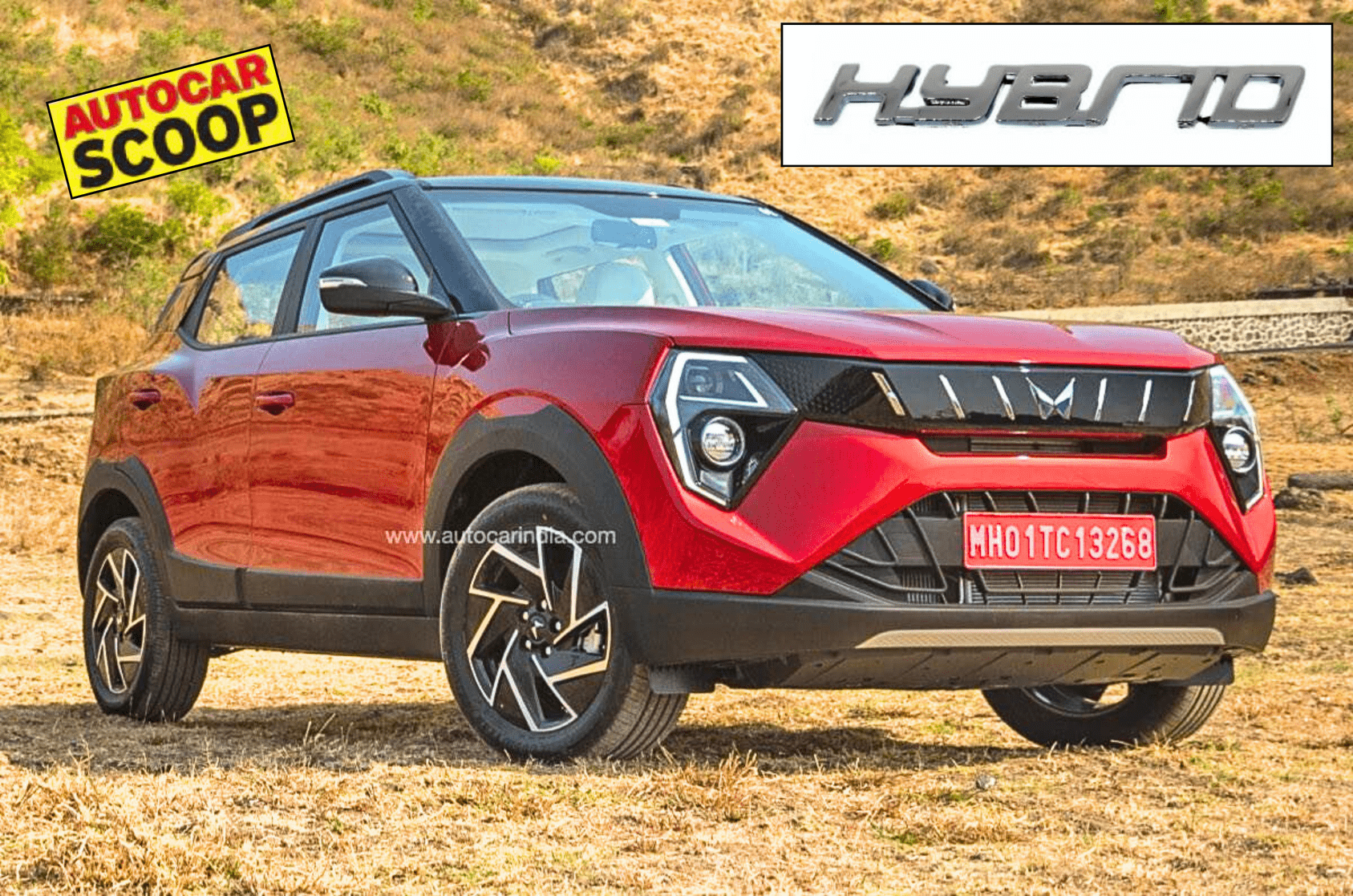
Having created a buzz around EVs, Mahindra is now planning to expand its powertrain lineup to even include various hybrid technologies. Sources familiar with the matter indicate that the company is exploring hybrid powertrains, from strong hybrids to range extenders, to broaden its portfolio.
- XUV 3XO hybrid project is called S226
- Range extender hybrids being explored for BE 6, XEV 9e
- Hybrids accounted for 2.1 percent of total PV sales in 2024
Mahindra XUV 3XO to get a strong-hybrid powertrain
A strong hybrid system is being studied for the compact XUV 3XO under project S226, and it is expected to hit the road by 2026. Sources in the know tell us that Mahindra is considering using its 1.2-litre three-cylinder turbo-petrol engine with a hybrid setup. This unit has the space to fit all the systems required to make it a petrol-electric strong hybrid.
Mahindra BE 6, XEV 9e Range Extender hybrids being explored
Range Extender Hybrids are being considered for the existing INGLO platform models, which are codenamed M130 and M330. Sources say the company's final decision on whether to proceed with them will be defined by the response to the EVs, BE 6 and XEV 9E. Technical development and design work for range extenders on the INGLO Platform have begun. The final decision on a market launch is likely to be taken in the next six to eight months. Range extenders are primarily electric vehicles, using a gasoline engine solely as a generator to recharge the battery and extend the electric driving range.

These models could add approximately 40,000 to 50,000 units annually. Mahindra, however, did not respond to an email request for comment.
Other carmakers currently working on hybrids for India
Japanese automakers Suzuki and Toyota are the leaders in the country's hybrid vehicle segment, with their mid-size SUVs, the Grand Vitara Hybrid and the Toyota Urban Cruiser Hyryder. The Japanese duo will likely add two more models with a hybrid powertrain to the C-segment SUV market in 2025. Maruti Suzuki has also started working on a Range Extender solution for compact cars to popularize hybrid technology in the country.
Even South Korean carmakers Hyundai and Kia have already started developing affordable hybrid solutions for the Indian market. Skoda Auto Volkswagen and JSW MG Motor also plan to introduce hybrid alternatives for the Indian market in the coming years, even as more EV alternatives are launched in 2025.

Scope and demand for hybrids in India
In 2024, hybrid and EV vehicles were in close competition, with EVs slightly outselling hybrids in the previous year. While EVs accounted for 2.4 percent of the overall passenger vehicle market in the prior year, with retail sales of over 90,000 units, hybrids were slightly lower at 85,000 units, or 2.1 percent.
Due to the slower-than-expected pace of EV adoption in 2024 and the sustained challenge surrounding charging infrastructure, many prospective buyers started opting for hybrid vehicles or alternate internal combustion engine models.
Mahindra views hybrid technology as a stepping stone towards full EVs. In one of its quarterly earnings media conferences, Anish Shah, MD and CEO, said, “It's a slightly different powertrain. And to the extent that it's required, we'll be ready with that. If there is a significant change in the demand for hybrid vehicles and our customers ask for it, then we'll move into it much faster,” he added.
Rajesh Jejurikar, Executive Director and CEO of Automotive and Farm Business, does not believe hybrids pose a significant threat to EVs in India.
"We don’t see hybrid-wanting customers actively cannibalizing us, except in very few segments at an appropriate time. Depending on how the category is moving, we will look at hybrids whenever we need,” he said recently.
Also See: